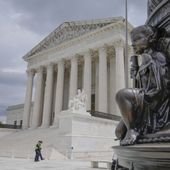SAN FRANCISCO (AP) — Thomas P. “Tip” O’Neill secured down payments for Boston’s Big Dig. Sam Rayburn sent gushers of cash back to Texas, along with tax breaks that helped its oil industry. Hospitals, schools and nonprofits in J. Dennis Hastert’s hometown of Aurora, Ill., have seen millions roll in during his reign.
Now Rep. Nancy Pelosi of San Francisco is poised to follow them as speaker of the House — a perch predecessors used to channel big cash to pet projects back home.
“There’s a long tradition where, not only can you bring back your average pork as a member of Congress, but speaker pork gives you a lot of money, a lot of influence over the purse,” said Julian E. Zelizer, a congressional historian at Boston University.
Mrs. Pelosi, a Democrat, will be the first Californian to hold the post, and congressional watchdogs say they’ll be observing her new spending clout with great interest.
There are “a lot of peeping chicks everywhere,” said Tim Ransdell, executive director of the California Institute for Federal Policy Research in Washington.
Aides to Mrs. Pelosi don’t dispute that the state will benefit from a changing of the guard at the Capitol.
“From the speaker’s chair to committee chairs, Californians in Congress will have additional clout to help the home state,” said Jennifer Crider, a spokeswoman for Mrs. Pelosi. But less than a week after the election, Mrs. Pelosi has no specific wish list for her district, Miss Crider said.
As she has moved up through the ranks of spending committees and the Democratic leadership, Mrs. Pelosi already has helped send millions of dollars home.
According to Citizens Against Government Waste, a federal spending watchdog, in the past two fiscal years Mrs. Pelosi has helped obtain:
$6.7 million for the Presidio Dental Clinic.
$2.1 million for the San Francisco Maritime National Historic Park.
$388,000 to the Filipino Cultural Center in San Francisco for “rehabilitation.”
Now, as she prepares to assume one of the most powerful posts in Congress, the pressure to funnel money to the San Francisco Bay Area is bound to increase, Mr. Ransdell said.
“The transportation crowd will want rebuilding of freeways or the Bay Bridge access, or else more money for a transit project here or there,” he said. “The social-services community will want additional funding perhaps for a welfare program, or else maybe construction of additional low-income housing or homeless housing.”
As she considers requests for hometown projects, Mrs. Pelosi has powerful partners: Democratic Sens. Dianne Feinstein and Barbara Boxer, also from the Bay Area.
With Democrats taking over the Senate, Mrs. Feinstein likely will assume leadership of an influential spending subcommittee. Mrs. Boxer will become chairwoman of a committee key on transportation projects and climate-change research.
In September, the House changed its rules to end secret pork-barrel projects. The resolution banned a practice in which lawmakers anonymously insert “earmarks” — narrowly tailored spending that often helps a specific company or project in their district — into bills.
The measure required lawmakers to identify the special projects they slip into legislation. Mrs. Pelosi voted against it. Miss Crider said Mrs. Pelosi wanted a more stringent package of rules, but that measure ultimately failed.
One of Mrs. Pelosi’s first actions in January will be to try again to pass “a strong rules package” that would among other things renew and strengthen the ban on secret earmarks, Miss Crider said.



Please read our comment policy before commenting.